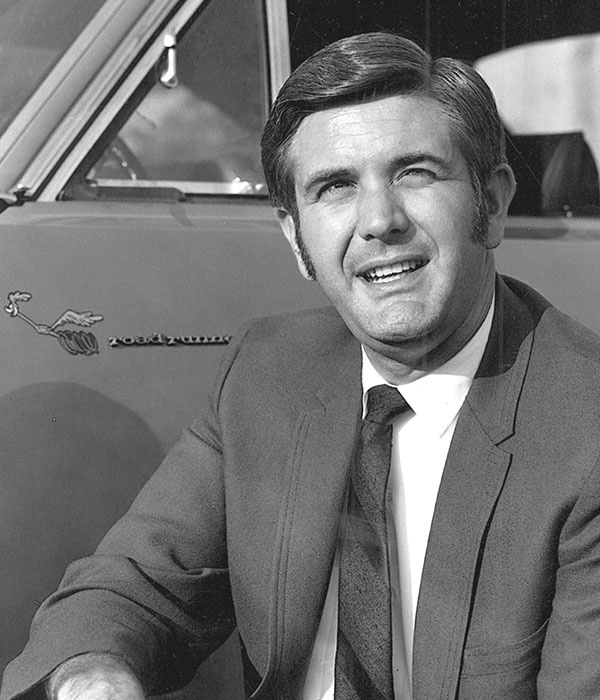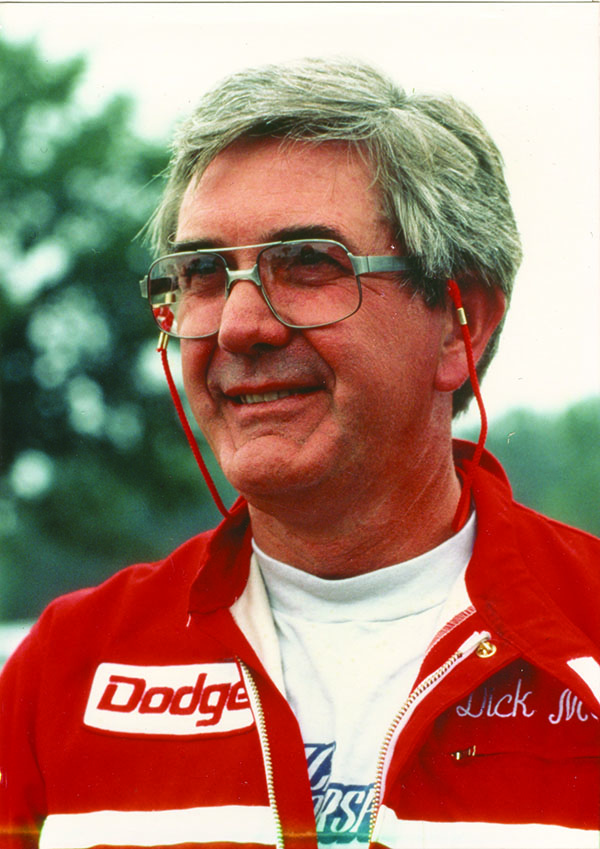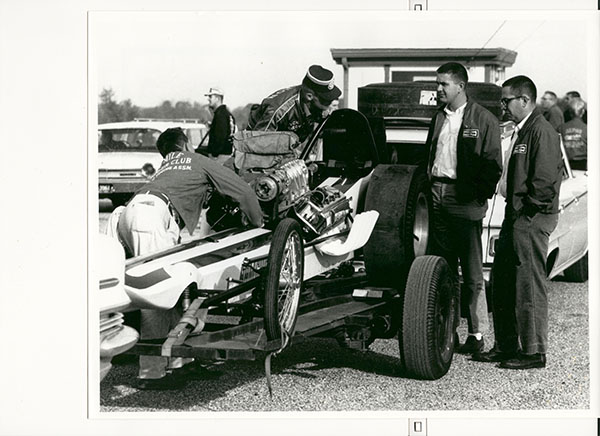2006 SEMA Hall Of Fame Inductee

Dick Maxwell
Chrysler Corporation
Few people foresee the path they will eventually follow, but Dick Maxwell recognized automotive engineering as his road very early on. His father, Carl, worked on and helped redesign diesel engines during a 42-year career with the Caterpillar heavy-equipment company, and he shared his love of cars with his son. After graduating from high school in his home town of Washington, Illinois, and taking a Bachelor of Science degree in Mechanical Engineering from the University of Illinois, the younger Maxwell went to work as a student engineer with Chrysler Corporation in 1959, enrolling in the company's Chrysler Institute of Engineering and eventually earning a Master of Automotive Engineering degree in 1961.
Even before earning the MAE, however, Maxwell had joined the Ramchargers drag racing team, which included Tom Hoover, The Godfather of the HEMI, as well as other Dodge engineers. That group became one of the dominant forces in 60s and 70s drag racing, particularly because the engineers worked on the race cars as part of their jobs.
The factory drag racing programs really started at Dodge and Chrysler in 1961, when the Ramchargers developed an engine to run in Frank Wileys new car, Maxwell said several years ago in an interview with David Harris for Drag Racing Online. The thing that really pushed corporate involvement, though, was the emphasis that was being put on [drag racing] by the competition, primarily Pontiac. So we did the first package cars in late 1961 and 1962. From the factory standpoint, we had a lot of people out there racing for us.
His work with the Ramchargers helped solidify Maxwell's reputation not only for understanding how things should work but also for his willingness to get his hands dirty. The Ramcharger group was like any other volunteer organization, said Hoover. Theres always a hard core that gets 75% to 85% of the work done, and then there are hangers-on and peripheral talkers. Dick was one of the hard core.
By 1969, Maxwell was the manager of performance activities for Chrysler and had recognized that factory racing programs and the performance parts aftermarket should work together. Chrysler at first tried to market, price and sell its performance parts with the methods it used for replacement parts, but Maxwell and others realized that there was a better way. He pushed for a performance parts program that utilized warehouse distributors and dealers, with pricing and discounts similar to those used for other specialty-equipment products, a program that eventually morphed into the Direct Connection program and later Mopar Performance that still exists today.
Maxwell also influenced Chrysler Corporation's image within the street-rod community. While Ford products were and remain the dominant body sources for most rods, and Chevrolet provided the vast majority of the engines, Maxwell pushed for Chrysler brand recognition by instituting the Mopar Country concept at National Street Rod Association gatherings. He had an area set aside at the shows where Mopar-bodied or -powered products could be displayed, and while the other marques remained in the majority, Chrysler made definite inroads.
As Maxwell progressed up the management ladder, impressing coworkers and supervisors along the way, he became more and more convinced that the automakers needed to cooperate with and support specialty-equipment companies in order to reap benefits for both. To that end, he worked within Chrysler to open the company's race activities to the aftermarket and to solidify its relationship with SEMA. As a direct result of his efforts, Chrysler became the first original-equipment manufacturer to join the association and, in 1974, the first to exhibit at the SEMA Show. Maxwell further reinforced his commitment to the association when he later became the first employee of an OEM to serve on SEMA's Board of Directors.
In 1975, Maxwell succeeded one of his retiring Chrysler mentors, Bob Cahill (a 1997 inductee into the SEMA Hall of Fame), and was named vehicle performance racing manager, with responsibility for all of Chrysler's corporate racing programs. His legacy includes the introduction of now-commonplace racing concepts such as team uniforms and component specialists (team members responsible for specific tasks) as well as the first OEM front-wheel-drive race and parts programs, presaging the modern-day tuner phenomenon.
Maxwell was also an off-road aficionado of the first order. He loved to ride dirt bikes, and he became an accomplished rally driver late in his career. In the 1980s, he guided an off-road Dodge truck racing program that included support for two of the sport's most famous stars: Rod Hall and Walker Evans. In fact, co-driving with Evans in the Baja and other off-road events became a favorite activity for Maxwell. The fact that Dodge trucks grew in stature because of their off-road race wins was part of the Maxwell strategy.
Dick was always looking for areas and opportunities to sell new vehicles, because the long and short of it is that we were in business to sell new cars, said Warren Tiahrt, one of Maxwell's oldest friends from the Chrysler days.
Maxwell retired from Chrysler Corporation in 1991 as manager of special vehicle programs for Dodge. From 1991 to 1993, he served as the American Motorcycle Association's vice president of sports marketing, where he managed professional motorcycle competition. A racer, street rodder and motorcyclist, his lifetime of work earned him induction into the National Drag Racing Hall of Fame, election to the Hot Rod Hall of Fame as a member of the Ramchargers, and selection as one of the 10 Most Important Men in Drag Racing.
Tragically, Dick Maxwell succumbed to injuries he received in a highway motorcycle accident in 2002. He is survived by his wife of 18 years, Sandy Maxwell, as well as four daughters and one son, Pat, Lynn, Susan, Amy and Eric.
He was very strong-minded, you could say he was stubborn and you really had to have your stuff together if you were going to sway the way he felt, said Tiahrt. He was a strong guy, and I miss him a lot.




